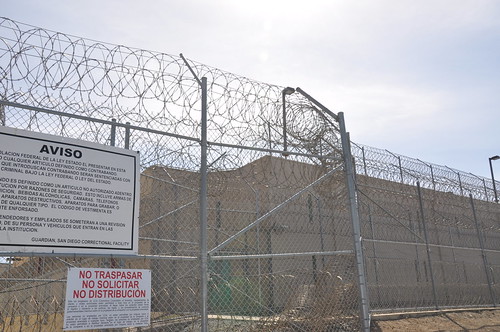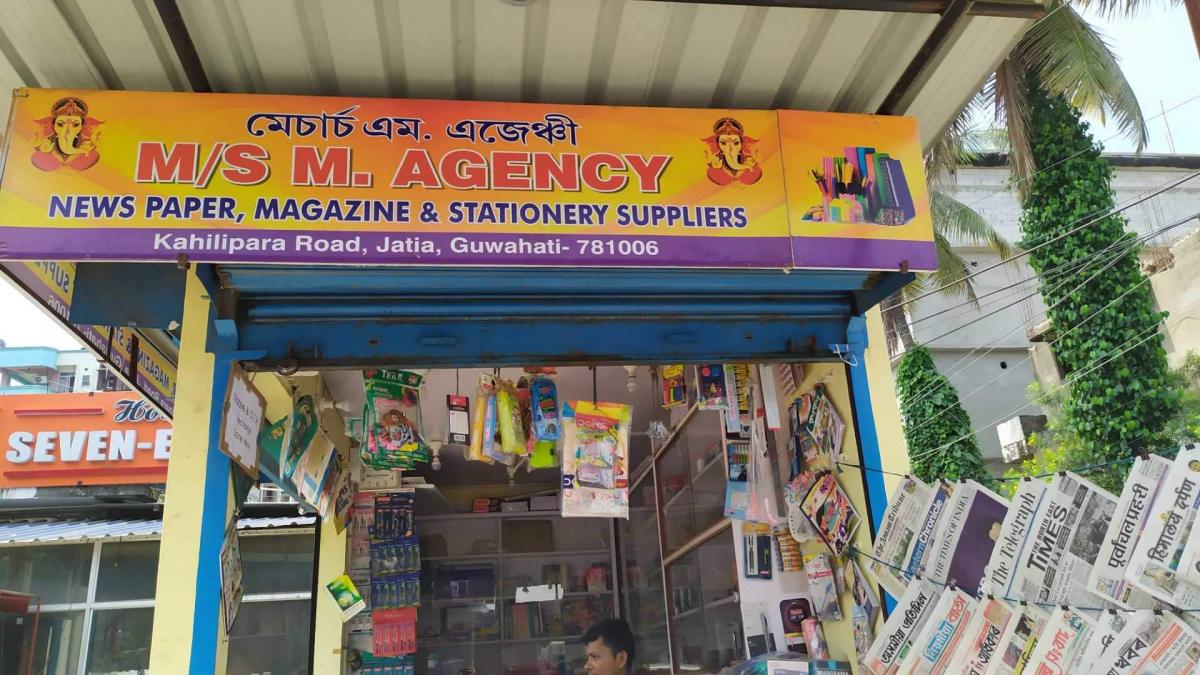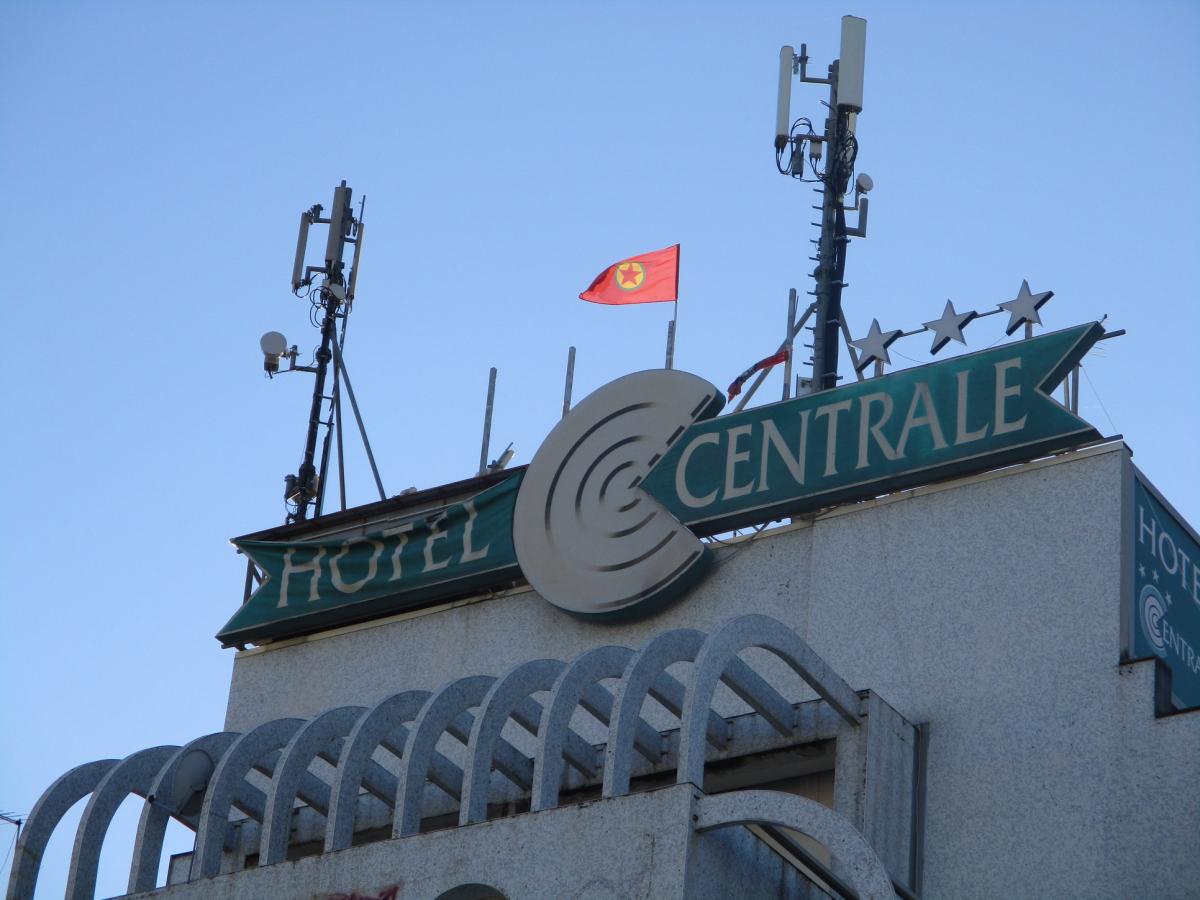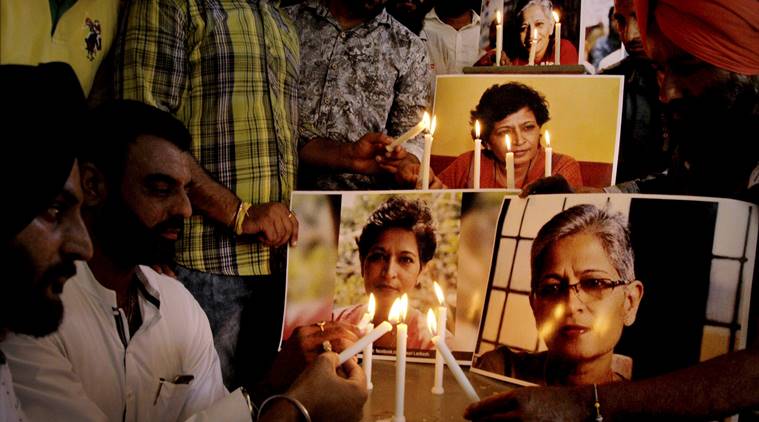Features
WE ARE KILLING THEM
The Heavy Toll COVID-19 Takes on Undocumented Immigrants
by Allyssa M.G. Scheyer, Jurist
By now, the effects of COVID-19 on American life and society are widespread and deeply felt, almost regardless of one's socioeconomic status. However, for undocumented immigrants in the United States, the COVID-19 crisis compounds issues that have existed for years, exposing immigrants to a barrage of political, social, and economic storm fronts that have disastrously collided at once. News outlets have reported on the real consequences of the near-national shutdown across the country. However, many recent news articles that cover the effects of COVID-19 on immigrants run the risk of understating the uniquely devastating effects that the virus has on undocumented immigrants and their families.
WILL NEWSPAPERS SURVIVE COVID-19?
by Nava Thakuria, CounterVortex
As an unprecedented lockdown imposed in response to the COVID-19 pandemic continues across India, the country's newspaper groups face an uphill battle to maintain their devoted readership. The complete shutdown, to last at least through April 14, instantly prevented deliveries of morning papers to readers' doorsteps, and rumors spread that a paper itself could carry the novel coronavirus. Many publishers have been forced to drastically reduce their circulation figure.
Prime Minister Narendra Modi announced the lockdown in a televised address to the billion-plus nation on March 24. The death toll from COVID-19 in India now stands at 275.
STALIN'S CAUCASUS CRIMES
That Putin Wants You to Forget
by James Oliver, Euromaidan Press
On February 23, the Chechen and Ingush peoples of Russia's North Caucasus commemorated a tragedy in their history—the start of the Soviet deportation in 1944. Initiated by Stalin and supervised by his intelligence chief Lavrentiy Beria, it was carried out by a force of approximately 120,000 NKVD officers that would round up and expel 478,479 people. Today, Vladimir Putin is trying to suppress this history.
Exploring the Caucasus is akin to exploring a mini-continent with its many diverse ethnic groups and cultures all contained within a small geographic region. Here the historical forces of East, North and South collide.
SQUAT CALABRIA
by Bill Weinberg, The Brooklyn Rail
The abandoned Hotel Centrale in downtown Cosenza, Italy, is a relic of ghastly 1970s-style retro-futuristic architecture, starkly at odds with the stately if decrepit medieval buildings of the city’s historic center, which begins just a few blocks away. But the Centrale has clearly been reclaimed by oppositional cultural forces.
The flag of Syria's revolutionary Kurds flies from the roof. A multiculti congregation of scruffy youth hang out in the lobby—some Italian kids with dyed hair and a punk aesthetic, some young migrants from Africa and the Middle East. A hand-scrawled sign at the entrance reads "Hotel Centrale Occupato"—with the O in occupato slashed with a lightning bolt, making the squatter symbol. Below, it reads, "Mangia, riposa... e lotta!" Eat, rest... and fight!
2019: INDIA IMPROVES JOURNO-MURDER INDEX
by Nava Thakuria, CounterVortex
As the year 2019 is approaching the finish line, India appears to have improved its journalist murder index—with authorities counting only two slain in circumstances directly related to their work this year. Reporters Without Borders counts nearly 50 journalists killed for their work to date this year (compared to 95 in 2018), and India's share has also gone down considerably—from six last year. Moreover, none of its neighbors except Pakistan and Afghanistan—that is, Bangladesh, Nepal, Myanmar (Burma), Sri Lanka, Maldives, Tibet (under China) and Bhutan—have reported any incident of a scribe's murder this year. Pakistan and Afghanistan topped the list of journo-murders in South Asia, with each country losing five journalists to assailants in 2019.
IDLIB RESISTS
Syrian Resistance Stands Up Again—This Time Against Islamist Militia
by Leila Al Shami
Over the past few days a popular uprising has broken out across northern Syria's Idlib against the hardline Islamist group that is militarily dominant in much of the province—Hayaat Tahrir Al-Shaam or HTS, formerly the al-Qaeda-linked Nusra Front. The uprising began when HTS increased zakaat (taxes) on a number of goods and services including bread, electricity and olive oil.
In Kafar Takharim, a town in north-estern Idlib, which is dependent on olive oil production for income, locals refused to pay increased taxes and attempts by HTS to control the olive oil presses. The local council in Kafar Takharim has long resisted attempts at take over by the HTS-linked Salvation Government. Locals staged protests and stormed HTS- controlled olive presses and police stations, successfully evicting HTS from their community.
LEFT WAITING
Africans Caught in US-Mexico Migration Limbo
by Melisa Valenzuela, The New Humanitarian
For months, hundreds of African migrants and asylum seekers from conflict-ridden countries like Cameroon and the Democratic Republic of Congo have been camped out in tents in front of the main immigration detention facility in the town of Tapachula, in southern Mexico.
Most flew halfway around the world to Brazil, then made the dangerous journey north through the Darien Gap—a remote, roadless swath of jungle—before traversing Central America into Mexico in the hope of finally reaching the United States to claim asylum.
On reaching Tapachula, they found themselves corralled into a detention centre and told they couldn't progress further without a permit that protects them for deportation and allows them to stay legally—permits that are harder to come by since Mexico agreed in June to help the United States limit the number of migrants crossing the US-Mexico border.
ROME SQUATTERS FACE CLAMPDOWN
by Bill Weinberg, Fifth Estate/The Villager
It was a multicultural crowd that gathered in Rome's Plaza San Silvestro to oppose the draconian Security Decree then pending in the Italian parliament. Popularly called the "Salvini Law" after Italy's far-right Interior Minister Matteo Salvini (who appears to be the real power behind the government), the Security Decree was explicitly aimed at two broadly overlapping groups: immigrants and squatters.
Many of those in Plaza San Silvestro were both. One prominent banner read: DALLE MONTAGNE DEL KURDISTAN AL CUORE DI ROMA, ARARAT NON SI SGOBERA. "From the mountains of Kurdistan to the heart of Rome, Ararat will not be evicted." It displayed painted images of a mighty mountain and an old industrial building. Flying above the banner was the red-star flag of the Kurdish revolutionary movement in Turkey and Syria.
Ararat is, of course, the famous mountain in Turkey’s Kurdish east, but here it also refers to the Ararat Kurdish Cultural Center, one of Rome's many squatted community centers, in a reclaimed industrial space in the city's outlying Testaccio district. There was another contingent at the protest of Peruvian migrants living in a squatted building, and yet another of squatters from various Horn of Africa countries. The contingents clustered in groups, while the riot police and paramilitary Carabinieri formed a ring around the perimeter of the plaza.























Recent Updates
4 hours 12 min ago
4 hours 21 min ago
4 hours 33 min ago
3 days 7 hours ago
1 week 1 day ago
1 week 1 day ago
1 week 2 days ago
1 week 2 days ago
1 week 3 days ago
1 week 3 days ago